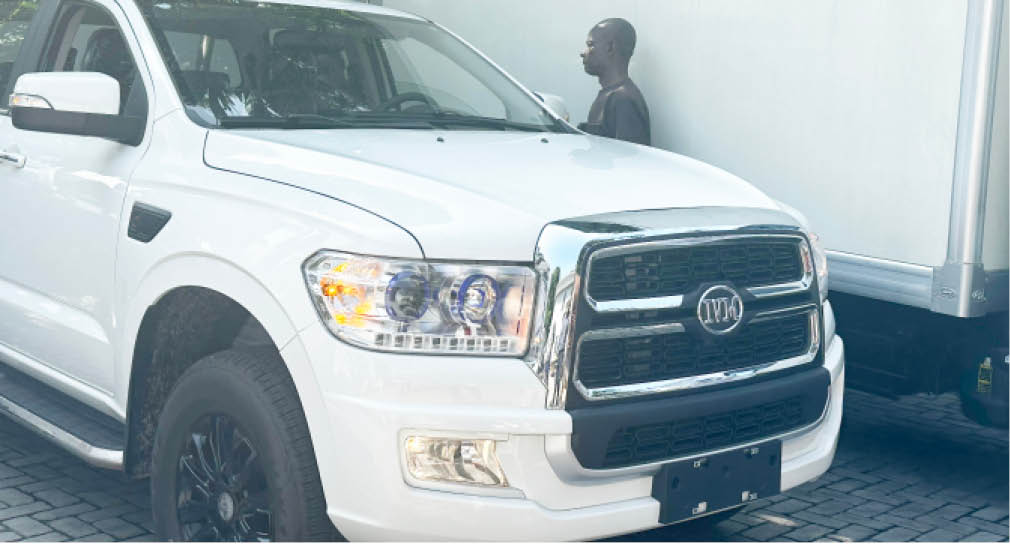The director-general of the National Automotive Design and Development Council (NADDC), Mr Oluwemimo Joseph Osanipin, yesterday expressed concern over reliance on vehicle importation in the country’s automotive industry, saying the country cannot develop with importation.
He disclosed that in 2023, N1.47 trillion was spent on importation of passenger cars, which was a 224.67 per cent increase from 2022, according to the National Bureau of Statistics (NBS), saying that many countries grow their economy through the development of the automotive sector.
Osanipin spoke in Lagos at the maiden Nigeria Auto Industry Summit organised by the Nigeria Auto Journalists Association, in collaboration with the NADDC, with the theme, “Developing Nigeria’s Economy through the Auto Industry.”
Giving a comparative analysis of automobile industry development in other countries in the world, he noted that in 2013 when Morocco started its National Automotive Industry Development Plan (NAIDP), it exported 23,000 units of vehicles, but 10 years after, the country now exports 460,000 units of vehicles.
- Nigerian troops deployed to tame political instability in G/Bissau
- Nigeria’s cryptocurrency market worth over $400m – SEC
Despite starting the auto policy about the same time, he said Nigeria had continued to import without exporting any vehicle, adding that the trend has to be changed.
Osanipin said that at a time Nigeria should have migrated from Semi-Knocked Down (SKD) to Complete Knocked Down or Fully Built Units (FBUs), the country has continued to retrogress into what he called, “Dismembered Knocked Down” (DKD).
He warned that the industry might be doomed without taking some steps forward to change the trend.
He said, “To that end, we must strive towards a future where Nigeria is not just a consumer but also a producer of high-quality automobiles. In other words, let us consume what we produce and produce what we consume in line with the ‘Renewed Hope Agenda’ of Mr President.
“The good news is that we are already making strides as Nigeria has a number of local assembly plants in operation and the government is more than ever committed to seeing the industry thrive.”
According to him, South Africa, Morocco, among others, grow their economy through the development of the auto sector.
He lamented that the money spent on importation put pressure on foreign exchange, hindering job creation and retards the economy, saying stakeholders must collaborate for Nigeria to move from being a consumer of auto products to one of the major producers in the world.
“If it is tricycle we can produce, let us get 90 per cent of local content; we are still doing DKD with tricycle. Let us consume what we produce,” he added.
He said that having seen the challenges in the automotive sector, the NADDC is supporting the development of a vibrant domestic automotive industry.
“We are working on several initiatives to achieve this, including implementing the Nigerian automotive industrial development plan. This plan provides a roadmap for the industry’s growth, outlining strategies/incentives for attracting investment, developing local content and creating jobs.
“We are working with different stakeholders to create training programmes that equip Nigerians with the skills needed to succeed in the automotive industry,” he further said.
Mr Luqman Mamudu, a former acting director-general of the NADDC, called for a swift passage of the NAIDP 2024 to 2034 or NAIDP Act as amended to engender investor confidence.
He said, “The development of the automotive industry by indigenous and international automotive companies results in massive employment and increases in tax revenue for the government. These companies generate profits from their operations and contribute to the local economy through corporate taxes, personal taxes, duties and other forms of taxation.”
“The automotive industry is a significant employer, creating both direct and indirect employment opportunities. The establishment of manufacturing plants and related facilities leads to job creation across various sectors, contributing to overall economic development and prosperity. By 2017, the NAIDP resulted in the employment of over 3,000 new personnel in the industry.”

 Join Daily Trust WhatsApp Community For Quick Access To News and Happenings Around You.
Join Daily Trust WhatsApp Community For Quick Access To News and Happenings Around You.


